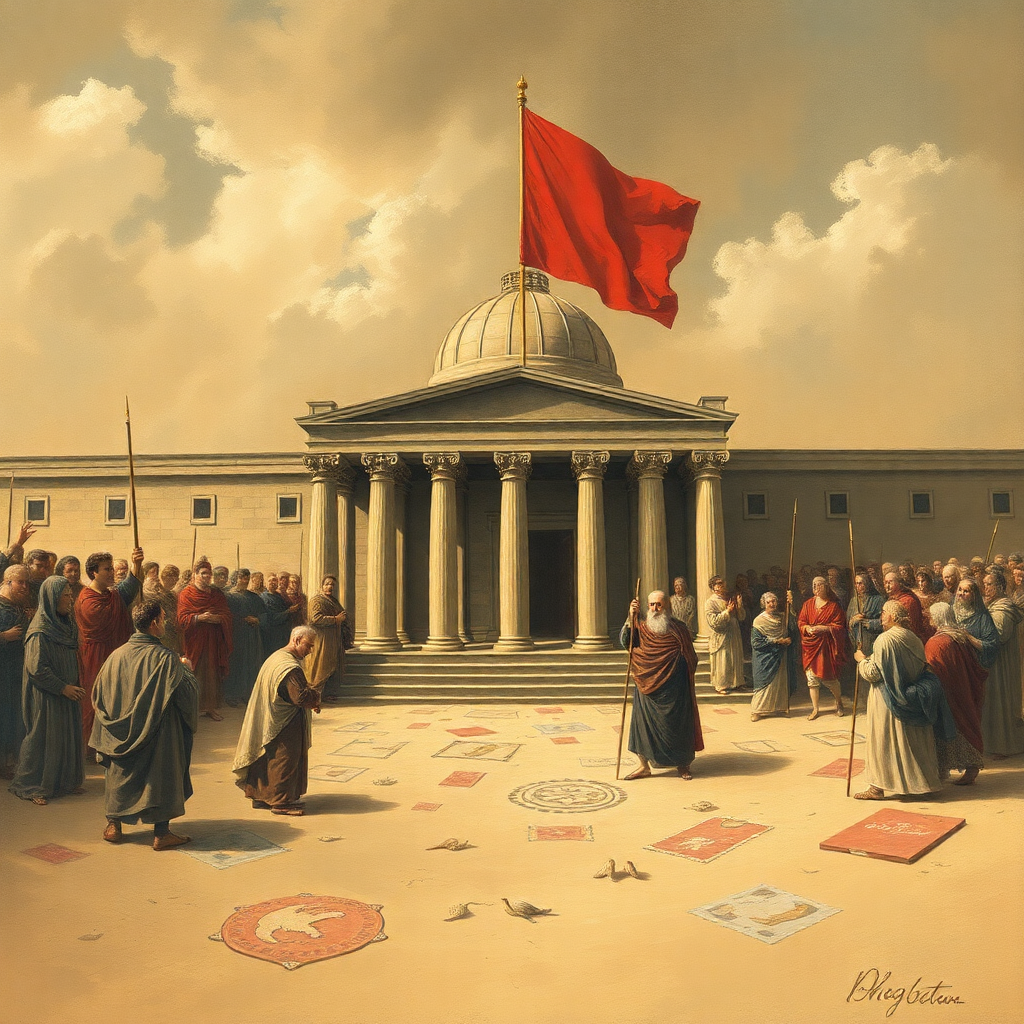Does the Bible support theocracy?
Kings like David and Solomon are often seen as examples of leaders who were both political rulers and spiritual figures, suggesting a blend of governance and religion that resembles theocratic characteristics.
The concept of theocracy, a system of government in which priests rule in the name of God or a deity, has been a topic of debate among theologians, historians, and political scientists for centuries. This blog post aims to explore this topic by examining biblical texts, historical applications, and the implications of a theocratic society.
The Old Testament and Theocratic Governance
To understand whether the Bible supports theocracy, it's crucial to look at the Old Testament, particularly the governance of the Israelites as described in the books of Exodus, Leviticus, Numbers, and Deuteronomy. After their exodus from Egypt, the Israelites formed a unique covenant with God, which was characterized not only by religious tenets but by a distinct political and social structure. Under leaders like Moses and later judges, the Israelites received laws believed to be divinely ordained, often referred to as the Mosaic Law.
These laws encompassed both spiritual and civil matters, suggesting that governance was intended to reflect divine will. For example, the frequent exhortations for the Israelites to adhere strictly to the laws, and the sanctions for disobedience, imply that the leaders acted as intermediaries between God and the people, a hallmark of theocratic systems. However, it’s essential to note that this form of governance was not a theocracy in the modern sense, as it operated within a tribal and agrarian context, with fluctuating leadership structures based on both religious and secular authority.
Israel’s Transition to Monarchy
As the Israelites settled in Canaan, there was a critical shift from a theocratic model to a monarchy, which the books of Samuel detail. The demand for a king was seen as a rejection of God's rule, signifying a departure from a theocratic system.
However, God permitted this transition, indicating a complex relationship between divine authority and human governance. Saul was anointed as Israel’s first king, which could imply God's endorsement of a monarchical system. Scholars have debated whether this move aligns with theocratic principles or marks the beginning of a new, less directly divine governance.
The later kings, especially those who governed according to the religious laws, reinforced the notion that a ruler's legitimacy derived from adherence to God’s commands. Kings like David and Solomon are often seen as examples of leaders who were both political rulers and spiritual figures, suggesting a blend of governance and religion that resembles theocratic characteristics.

The Prophetic Voice in Theocracy
The role of prophets in the Old Testament further complicates the relationship between theocracy and governance. Prophets served as God’s spokesperson, often critiquing kings and the direction of the nation. Their messages sometimes called for a return to a purer form of worship and adherence to God's laws, reflecting a theocratic ideal where divine will is paramount over human authority. The prophetic voice was crucial in maintaining the ethical and moral standards that aligned with theocratic values, suggesting that while there may not have been a perfect theocracy in Israel, there was certainly a desire for leadership that exemplified divine principles.
The New Testament Perspective
The New Testament introduces new dynamics to the discussion of theocracy, especially with the arrival of Jesus Christ. His teachings often challenged established religious and political norms, suggesting a separation between secular power and divine kingdom.
The well-known phrase “Render unto Caesar what is Caesar’s, and unto God what is God’s” (Matthew 22:21) highlights this dichotomy. While Jesus reaffirms the importance of God’s authority, he does not advocate for a theocratic government. Instead, he emphasizes a spiritual kingdom, one that transcends earthly political structures.
The epistles written by Paul and others also support the idea of Christians engaging with society while advocating for a moral and ethical life that aligns with biblical teachings. This nuanced view supports a model where faith and governance exist in dialogue rather than direct governance, further distancing the New Testament from theocratic ideologies.
Modern Implications and Interpretations
In modern times, various religious groups have sought to apply biblical principles to governance, claiming a theocratic foundation for their political ideologies. Countries like Iran and the Vatican City exemplify modern theocracies where religious leaders exert considerable influence over state affairs. However, the interpretation of biblical texts in support of theocracy remains contentious among different denominations and theological perspectives.
Many Christians argue against a theocratic model, advocating instead for a separation of church and state, which allows for the diverse expression of faith in increasingly pluralistic societies. This perspective champions the moral framework offered by biblical teachings without the necessity of implementing them through political power.